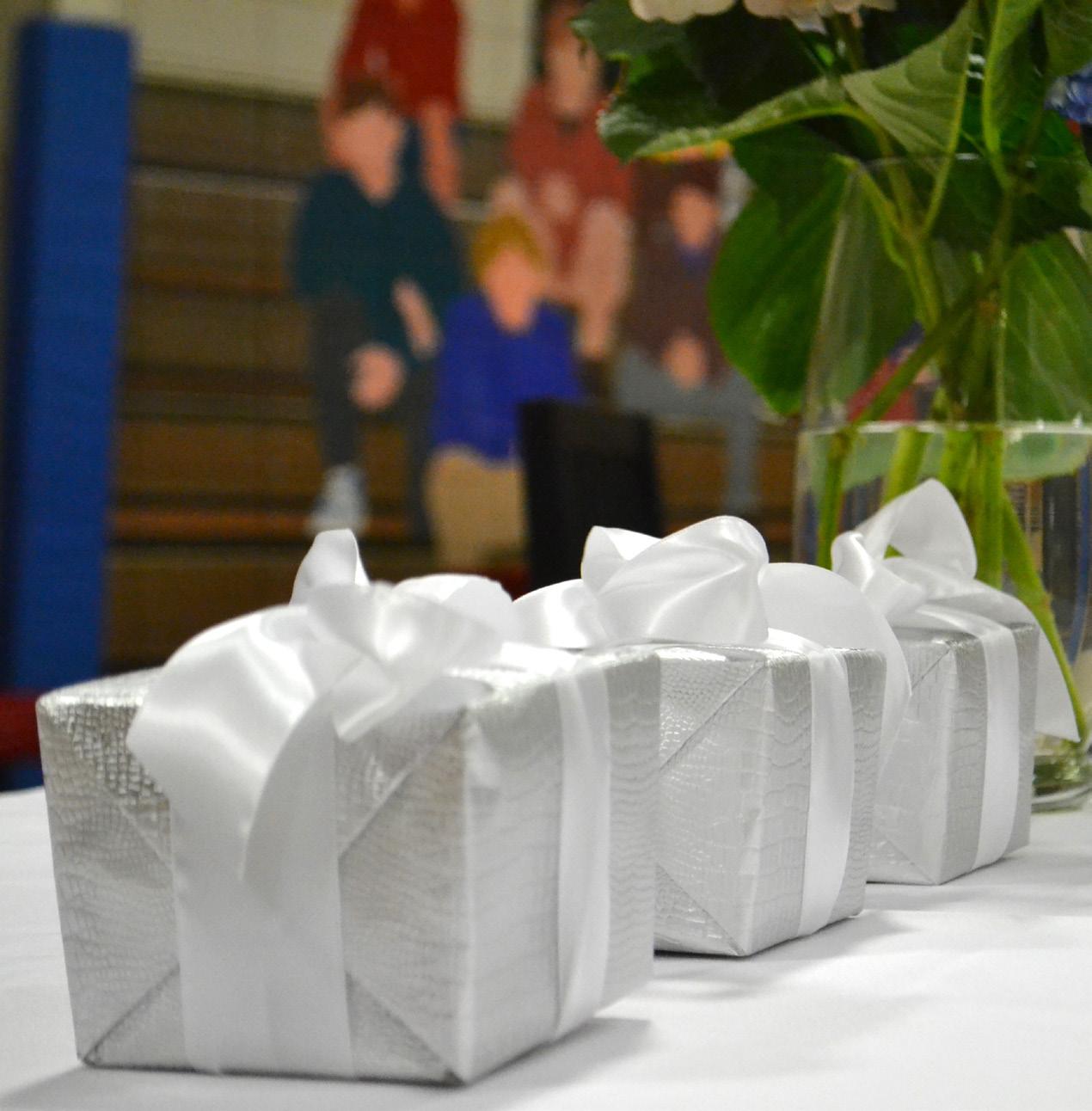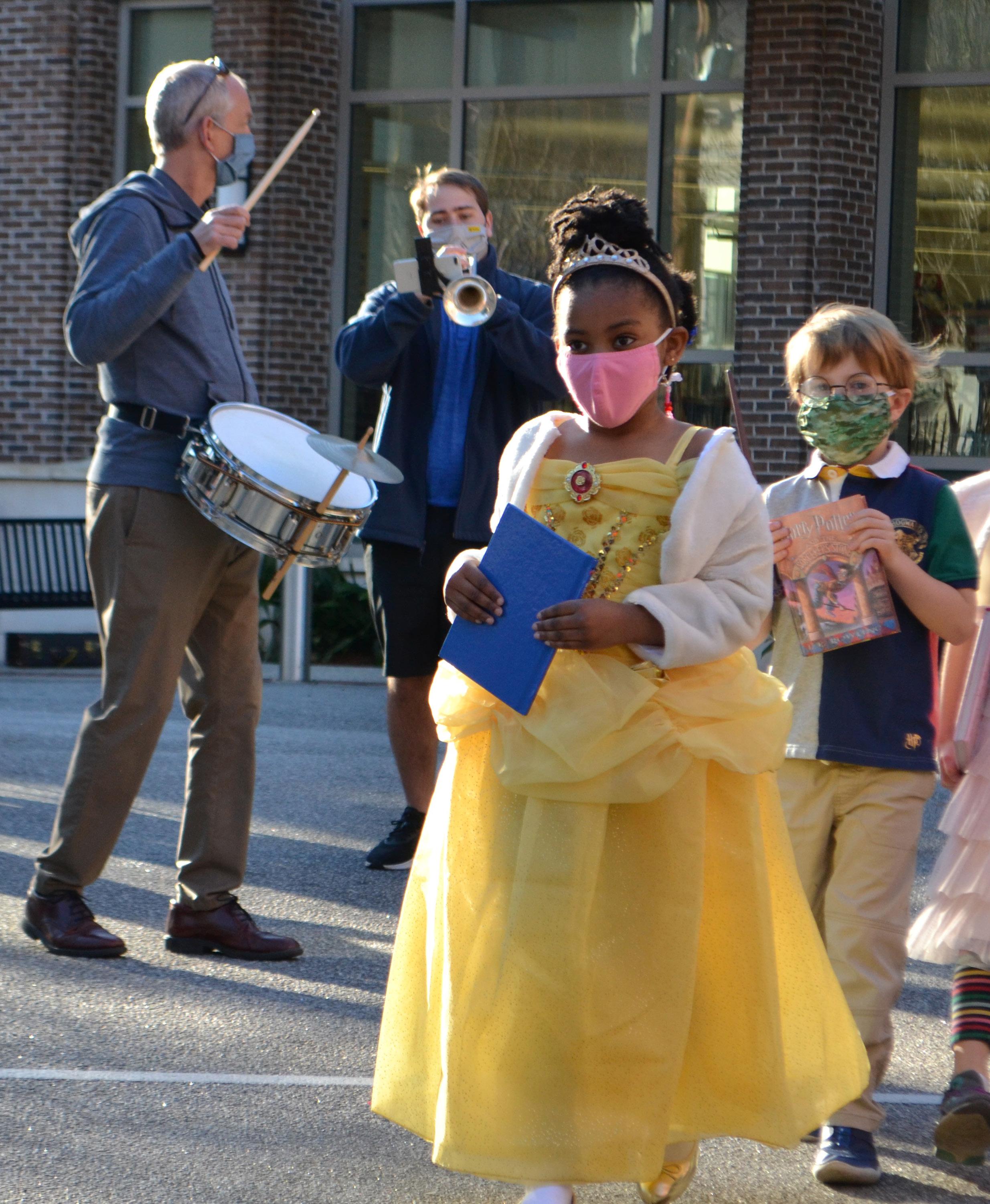
5 minute read
The Legacy of Mrs. Dottie Rhett
Speech given by Middle School Head Ms. Marianne Clare (’89) at Assembly, March 2021
When Mrs. Arnstein asked me to talk about Mrs. Dottie Rhett in recognition of Women’s History Month this morning, I was at first a little reticent. Women’s History Month was created to commemorate and encourage the study, observance and celebration of the vital role of women in American history. Was Mrs. Rhett an Eleanor Roosevelt? No. She wasn’t a Marie Curie, a Rosa Parks or an Amelia Earhart. And by that, I mean she didn’t make sweeping changes in the world that affected millions of people. Those are the kinds of people we think of when we think of Women’s History Month. But, when I stopped to think about it, Mrs. Rhett did have a vital role in my life and in the lives of every Charleston Day student, even the ones she never taught.
Advertisement
When we entered fifth grade, my classmates and I were astounded by the sheer height and perfection of Mrs. Rhett. She was, by far, one of the tallest people I had ever met, and she was always dressed impeccably. She wore high heels, straight skirts, and her hair was always styled so perfectly, that we almost wondered if she wore a wig. There was never a hair out of place. Mrs. Rhett was the epitome of southern grace and calm demeanor. She never spoke loudly or too excitedly, even when we knew she was excited or frustrated with us. Her voice was always a calm, soothing presence in the room. I remember that many of us thought we would never relate to this tall new teacher as she wasn’t one to jump in and act like a friend to her students. She had that reserved nature that made us all think she would always be distant.
Boy, were we wrong. Now, that reserved personality was always there. She never was the teacher who was going to play games in class or get down and dirty on the playground, but we quickly realized how important it was to her that we all learned in her class. We felt like she invested in our learning more than any other teacher had, and she always worked to target each of our individual strengths and improve our weaknesses.
Mrs. Rhett’s passion was teaching us to write. Every week, we wrote a composition in her class. She would teach us a grammar or writing skill on Monday, and we would work on a composition over the course of the week with the final draft due every Friday. And then all weekend, we would think about those compositions being graded. We knew that we would get them back on Monday, and class on Mondays was always filled with a special buzz. Before handing back the compositions, Mrs. Rhett would always pick four or five to read out to the class. I can remember sitting in my chair each week, hoping to hear the first few words of my composition read to the class. We always knew what our friends had written as well, and as soon as the first sentence of a composition was read, we would burst into smiles, turning to say to our classmates, “Oh, it’s yours!” After reading each of those compositions, Mrs. Rhett would explain what stood out about those works — a particularly impressive description or a variety of sentence structures.
But the most anticipated moment of each Monday happened as she handed out those papers. As soon as we received the paper, we would scan it, not looking for the grade, but looking for the allimportant word, “BOARD” written on it. Not bored as in, “I was bored” reading your paper, but BOARD as in “Bulletin Board.” Because “Making Board” was the best compliment one could receive from Mrs. Rhett. The six papers marked BOARD would be placed on the bulletin board, and everyone in the class would read those compositions over and over during the course of the week.
As soon as I got home on Mondays, the first question my parents would ask would always be, “Who made board this week?” It was that big of deal.
Now, it’s important to note that before we all started in fifth grade, most of us weren’t thrilled about writing compositions, and especially not about writing compositions every week. But, Mrs. Rhett, with her calm demeanor, made us all want to please her with our best writing because she made it so incredibly important. She made writing “cool” to us, and we always wanted to impress her with those descriptive words that would make her pause in appreciation or with creative dialogue that would make her chuckle the calmest of laughs or with complex grammar rules she had taught us during the week.
Over the course of the year, Mrs. Rhett taught us so many lessons aside from writing. She taught us the importance of looking people in the eye as we talked to them. She taught us to slow down, to be mindful of everyone around us. She taught us the importance of poise and grace, and if we ever bumped into someone, she would stare at us until we looked that person right in the eye, asked if they were okay, and then apologized. And one of the most important lessons I learned from her that I still use today is the knowledge that calm responses can often be a lot more effective than excited ones. If you notice, the lessons that she was imparting to us were the important tenets of the Charleston Day mission.
That spring, Mrs. Rhett decided to hold a speech contest, so my class was the first fifth grade to ever compete in the speech contest. We were all excited to write a speech for Mrs. Rhett. We worked on them for weeks, and then, just as we do now, we presented them to our classmates. During our practices, Mrs. Rhett reminded us constantly about poise and grace, about looking at an audience and standing tall — all the lessons she had been slowly teaching us all year. I was chosen to be a finalist in the official school-wide speech contest. I didn’t win, and at first I was disappointed in myself. But then, Mrs. Rhett looked me right in the eye and told me how proud she was of me and all of the hard work I had shown. Immediately, I knew that I had done everything I could, and that I should be proud of my accomplishment.
Since that year, every single fifth grader at Charleston Day has written and presented a speech. The fifth graders are reminded of the same important lessons I learned years ago — that strong writing and grammar can result in great compositions, that looking people in the eye when you talk to them can affect the way that they view you, and that poise and grace will always win. And that’s a legacy that certainly makes Mrs. Rhett worthy of being mentioned during Women’s History Month.





